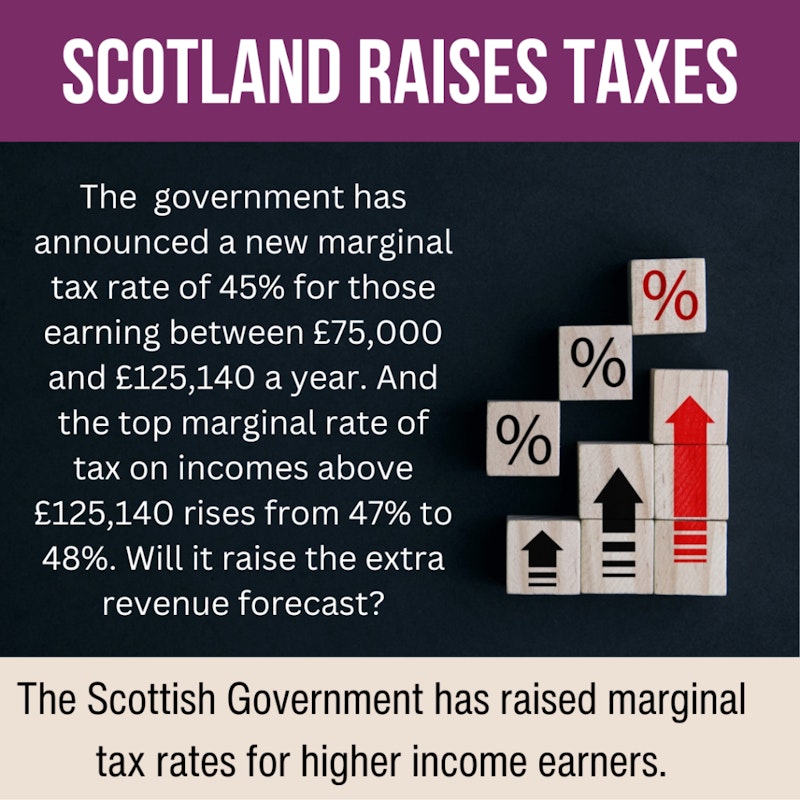In the News
Scottish Government Raises Taxes for Higher Earners

19th December 2023
The Scottish government has increased marginal tax rates for higher-earners and frozen tax allowances creating some fiscal drag effects along the way. The government has announced a new marginal tax rate of 45% for those earning between £75,000 and £125,140 a year. And the top marginal rate of tax on incomes above £125,140 rises from 47% to 48%.

Read more about this decision here
The BBC covers the decision here
In economics, does a rise in marginal tax rates for higher earning people necessarily lead to an increase in tax revenues for the government?
The relationship between marginal tax rates and tax revenues is a complex one, and the answer to this question is not always straightforward. Here are some factors to consider:
- Laffer Curve: According to the Laffer Curve theory, there is a certain level of taxation that maximizes government revenue. If marginal tax rates are increased beyond this optimal level, tax revenues may actually decrease as high earners may reduce their taxable income through tax avoidance or tax evasion.
- Elasticity of taxable income: The elasticity of taxable income refers to the responsiveness of taxable income to changes in tax rates. If taxable income is highly responsive to changes in tax rates, then increasing marginal tax rates may lead to lower tax revenues as high earners may reduce their taxable income.
- Compliance: If high earners are more likely to comply with tax laws and pay their taxes, then increasing marginal tax rates may lead to higher tax revenues.
Overall, the impact of higher marginal tax rates on tax revenues is not always clear-cut and depends on a variety of factors.
Graham Watson's insight:
Lord knows what the founding father of Economics, Adam Smith, would make of today's changes to the Scottish income tax system. A new 45% band for those earning between £75,000 and £125,140, and an even higher 49% band for those earning above £125,000, meaning Scotland now has 6 tax bands whereas the rest of the UK has three. I'm not sure how comfortably that sits with the notion of Smith's canons of taxation.
However, the Finance Secretary, Shona Robison, has introduced the bands to help fund a £1.5bn shortfall in the Scottish budget, alongside a series of spending cuts.
And surprise, surprise, the SNP has followed the UK government in freezing tax bands, meaning a Christmas-time dose of fiscal drag.
You might also like

Labour mobility limits tax raising powers
5th July 2017
UK Economy - Policy Focus - Work Incentives
Topic Videos

Kahoot and Quizlet Resources on Fiscal Policy
25th April 2023
IB Economics - Sources of Government Revenue
Study Notes
Daily Email Updates
Subscribe to our daily digest and get the day’s content delivered fresh to your inbox every morning at 7am.
Signup for emails
